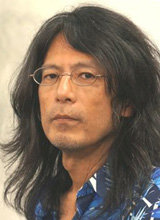‘Negative ion has no scientific evidence for health benefit,’ scholar says
‘Negative ion has no scientific evidence for health benefit,’ scholar says
Posted May. 22, 2018 07:19,
Updated May. 22, 2018 07:19

A recent scandal about radon mattress is due in large part to the market’s blind faith in negative ions having health benefit. Then how would the event be viewed in Japan, the home of a negative ion therapy. “The benefit of negative ions has not been scientifically proven and negative ion products available in the market are all false,” Kikuchi Makoto, a professor of Physics at Osaka University and a long-time critic of negative ion embedded products since the early 2000s, said in an e-mail interview with The Dong-A Ilbo.
Kikuchi, who studies statistical physics – a branch of physics that uses mathematical tools to solve physical problems – first pointed out a problem of misusing the word negative ion. He said negative ions used in health-related products are called “minus ions” in Japan, not to mislead consumers whereas the real negative ions in chemistry, referring to negatively-charged ions, are called anions by borrowing an English word. The different name is specifically adopted to prevent consumers from accepting negative ions used in products as something scientifically effective. Kikuchi said the negative ion therapy is a classic example of proto science, which means an unscientific field of study but could become a science later, emphasizing the fact that negative ions don’t have any scientific evidence for its benefit so far.
Kikuchi said the popularity of negative ions began in the 1990s, peaked between the late 20th and early 21th century, and went downhill since then. But it has not completely gone out of fashion. “The market for negative ion products is booming again in Japan. Although the number of products is decreased, electronic devices that are newly introduced are leading the second round of boom these days,” the Japanese professor added. Unlike South Korea where mattresses, bracelets, underwear and cosmetics that contain negative ion generating ores are selling well, electronics that release a stream of negatively charged ions, such as hair dryers and air purifiers, are much popular in Japan. Particularly, ionic hair dryers are so popular that virtually all dryers on the market are equipped with function to emit negative ions.
The problem is these products no longer use the term negative ions. “Some electronic makers use plasma cluster ions or Nano-E ions, and the market perceives products with these ions as better than the ones with the existing negative ions, some of which are in great demand,” Kikuchi said.
ashilla@donga.com






![“잠만 자면 입이 바싹바싹”…잠들기 전에 이것 체크해야 [알쓸톡]](https://dimg.donga.com/c/138/175/90/1/wps/NEWS/IMAGE/2026/02/23/133404747.3.jpg)
